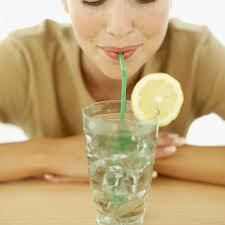As September is ‘World Alzheimer's Month’ we decided it would be
appropriate to re-post our original blog on Alzheimer’s as it
is a disease which has many myths and misconceptions associated with
it. Like anything, knowledge is power so it behooves us to learn the
facts.
Myths:
- Alzheimer’s is just a normal part of the aging process; if all of us lived to be 90 or 100 years old, would we all eventually get it.
- Only old people get Alzheimer’s.
- If someone in your family has dementia then you’ll get it too.
- There is nothing you can do once you’re diagnosed with Alzheimer’s.
Facts:
- Dementia is NOT caused by exposure to aluminum, aspartame, flu shots or tooth filings.
- A diet like the Mediterranean diet seems to have a protective effect and a diet that has a lot of saturated fat and sugar seems to place you at greater risk. Diets low in saturated fat and simple carbohydrates might be protective against Alzheimer's disease and improve brain health.
- People who eat baked or broiled fish every week may reduce their risk of developing mild cognitive impairment and Alzheimer's disease.
- Survivors of cancer, particularly non-skin cancers, appear to have a reduced risk for Alzheimer's disease.
- Right now, over 500,000 Canadians have Alzheimer's disease or other dementia.
Although
ageing can lead to some mild memory loss, we all get to the store and
forget what we went there to buy, or forget where we left the car keys,
but ‘senility’ or ‘dementia’ is NOT a normal part of ageing.
Recognising the symptoms and reporting them to our physician can help lead to early diagnosis and treatment. A recent Canadian study found that almost half of the patients recently diagnosed with Alzheimer’s lived with the symptoms for more than a year before they reported them, sadly this led to delayed treatment and support.
Recognising the symptoms and reporting them to our physician can help lead to early diagnosis and treatment. A recent Canadian study found that almost half of the patients recently diagnosed with Alzheimer’s lived with the symptoms for more than a year before they reported them, sadly this led to delayed treatment and support.
10 Warning Signs of Dementia:
- Memory loss that affects normal daily activities.
- Disorientation to person, place or time.
- Altered mood or behaviour.
- Difficulty performing familiar tasks.
- Impaired judgment.
- Personality changes.
- Challenges with language.
- Loss of initiative – loss of interest in activities.
- Difficulties with abstract thinking.
- Putting things in inappropriate places (e.g. Cell Phone in the Microwave).
Falls
in older adults who are otherwise physically and cognitively healthy
might also be an early sign of Alzheimer's disease, according to
research presented at the Alzheimer's Association International
Conference 2011 (July 17, 2011 | Paris, France).
"The
results of our study indicate the importance of understanding not only
the cognitive impairments associated with Alzheimer's disease, but also
the motor changes that appear to come before the cognitive changes. I
study falls in older adults, and we know that the fall rate among older
adults who have Alzheimer's disease is much higher than in adults who do
not" said Dr. Susan Stark, PhD, from Washington University, St. Louis, Missouri.
The Importance of Early Diagnosis:
Other
medical conditions can have symptoms similar to dementia and many are
treatable; these include vitamin and thyroid deficiencies, infections,
constipation, brain tumours, depression, drug interactions or substance
abuse.
It is particularly important to identify the type
of dementia. Medications are already available to treat some people
with Alzheimer's disease, and some people with Lewy body dementia, but
those drugs are ineffective in the treatment of Pick's disease (another
form of dementia), and may actually worsen its symptoms.
While
there have been significant advances in diagnostic testing methods for
Alzheimer’s that use brain scans and spinal taps that can detect
specific biomarkers of the disease even in its pre-clinical stage, but
currently there is still no single or definite test for Alzheimer's, it
is diagnosed through a comprehensive assessment by a qualified
physician. Diagnosis will include reviewing your complete medical
history, mental function assessment, a neurological exam and blood tests
(to rule out and possible treat other causes of dementia-like
symptoms). If you, or someone you love, have concerns about memory loss
or other possible symptoms of dementia, it is important to be evaluated
by a physician – the sooner, the better.
Reducing
the prevalence of lifestyle-based risk factors, including smoking and
physical inactivity, by 25% could potentially prevent up to 3 million
cases of Alzheimer's disease (AD) worldwide new research suggests.
Presented at the Alzheimer's Association International Conference 2011
and simultaneously published online July 19 in Lancet Neurology,
the study suggests, but doesn't prove, that up to 50% of AD cases are
potentially attributable to 7 preventable risk factors. These include
smoking, physical inactivity, midlife obesity, midlife hypertension,
depression, diabetes, and cognitive inactivity.
Experiencing
some memory loss does NOT mean you have dementia; talk to your doctor
if you have any concerns and remember ‘Knowledge Is Power’ so know the
facts.



















